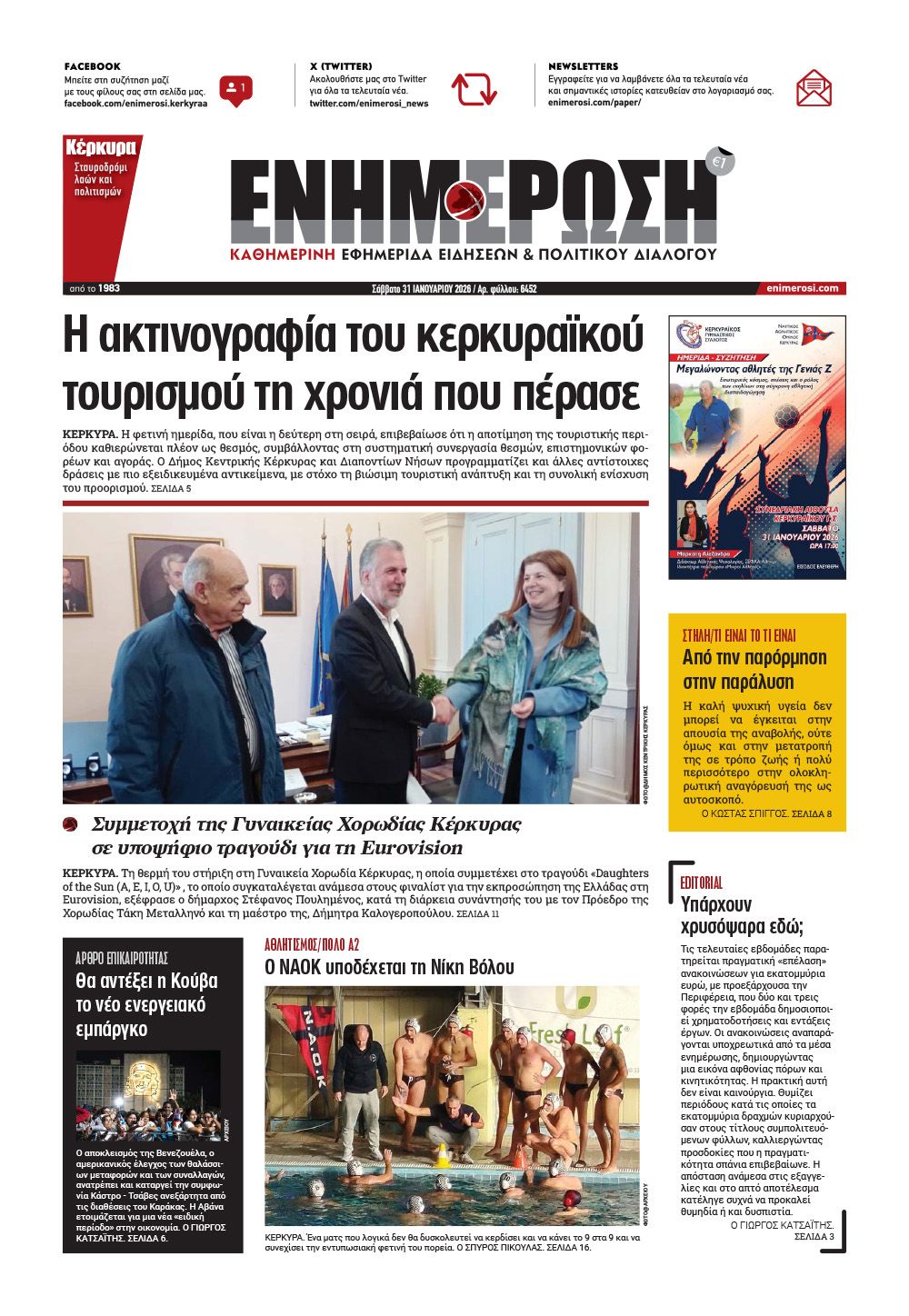7,000 unfilled tourism job vacancies in Corfu
 Archive photo
Archive photo
CORFU. Businesses are in favour of hiring imported workers for the season. See what the procedure is.
The shortage of human resources is becoming increasingly evident, as the tourist season begins in Corfu. Business professionals are at their wits' end, with some reducing tables and seating in their establishments due to the inability to find waiters, and others taking on the task of cleaning their own accommodation in the absence of staff.
According to the President of the Federation of Corfu Tourist Accommodation Owners, Pericles Katsaros, there are 7,000 vacant positions in the island's tourism industry, with significant shortages observed in cleaning staff, waiters, and kitchen personnel.
"Most establishments are opening with greatly reduced staff, while we have cases where agreements are made, deposits are given, and interested parties ultimately do not show up," Mr. Katsaros told Enimerosi. "We are searching for staff and cannot find any, despite the working conditions being humane and wages being above what is provided for by law."
Although there is now the possibility to cover labour shortages with imported human resources from third countries outside the EU, such as Afghanistan, Pakistan, Syria, Egypt, and Bangladesh, businesses believe that this should have already been done due to the time-consuming bureaucratic procedures required for these workers to finally start working.
"It is very difficult to make this work at 100% this year, unless the competent Ministry proceeds with fast-track procedures for these mobile workers," Mr. Katsaros told Enimerosi. "We have already pointed out that there is not enough labour and needs cannot be met due to the increasing tourism. This solution may be a breath of fresh air, but it is predicted that employers will have to provide accommodation as well. The large hotels, which do not have the housing capacity, already rent elsewhere for their staff and there is demand for such spaces."
In the Ionian Islands Region, the highest number of residence permits for third-country nationals for work for the years 2023 and 2024 comes to 3,836, of which 2,950 are for seasonal work (e.g. gardeners/ maintenance workers in green spaces in tourist businesses, kitchen assistants, dishwashers, cleaners, chambermaids, tourism entertainers).
The Regional Authority consulted with tourism, commerce, and manufacturing bodies to look into the needs for third-country nationals in professions that interest them, eventually requesting over 7,000 positions for the Ionian Islands.
However, faced with the impasse that has arisen, tourism professionals are in favour of hiring imported workers to make it through the season. According to the Ministry of Employment, these will be in sectors where there is no supply from Greek workers.
Interested employers must submit an application along with the required documents (including, among other things, payment of fee for seasonal work, a declaration of responsibility that they will hire the employees, a signed valid employment contract for the purpose of seasonal work and supporting evidence that suitable accommodation will be provided for the employee) to the local Services for Aliens and Immigration of the Decentralized Administration.
After examining the request, the Decentralized Administration sends the relevant decision approving the employment to the competent Greek consular authority. The Greek consular authorities decide on the request for entry into the Greek territory for the purpose of seasonal work and communicate their decision to the applicant, no later than 90 days after the submission of the complete application. The residence permit for seasonal work cannot exceed 9 months, while for dependent work a duration of at least 12 months is provided.
According to the Ministry of Employment, the same institutional framework governing the employment relationships of Greek/European workers (remuneration, minimum wage, working hours, hygiene and safety, etc.) applies to third-country workers, while in addition, for seasonal workers, accommodation for their stay must be ensured.Undermining workers' rights
The President of Corfu Union of Hotel Catering Employees, Stamatis Pelais, talks about a direct undermining of workers' rights. He told Enimerosi that workers from third countries come without the industry's collective agreements being applied, creating pressure on existing workers who see their rights being ignored.
Additionally, according to the President of the Panhellenic Federation of Catering and Tourism Employees, Giorgos Hontzoglou, the terms and wages for these workers have not been clarified, nor has the issue of their insurance been addressed, while no steps have been taken to address the problem of the lack of domestic workers.












